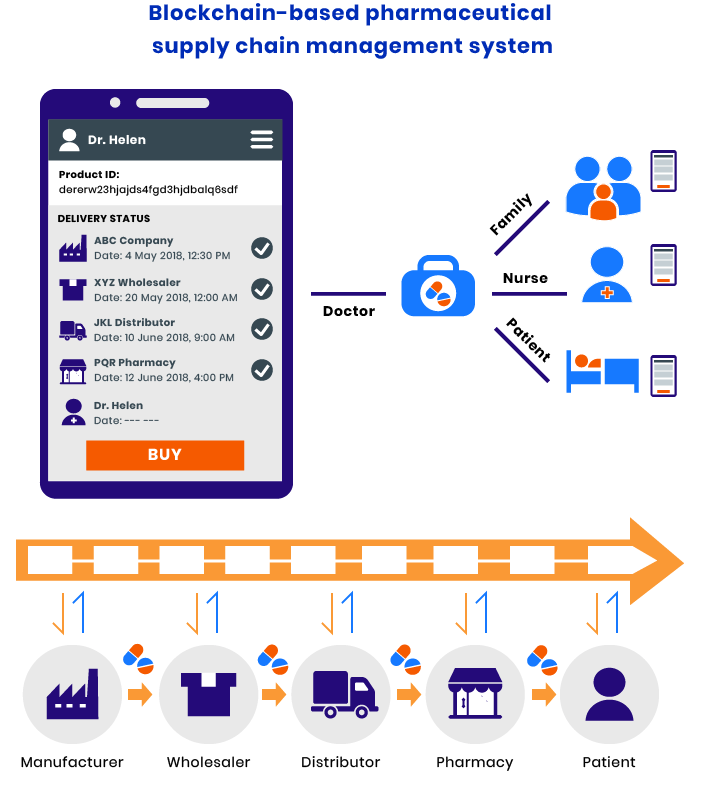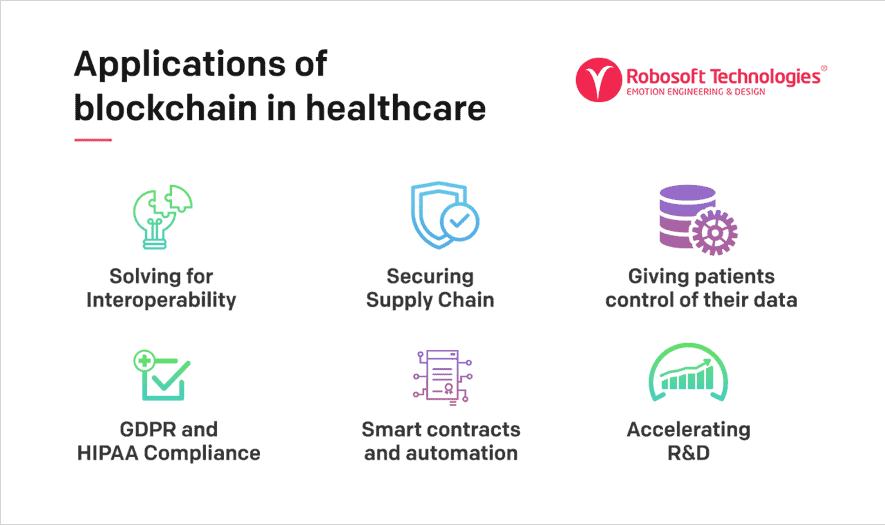
Most people still consider the Blockchain technology as a nascent technology, without understanding the great potential and dramatic increase inefficiencies that this technology can bring into all sectors, leave alone the healthcare industry. Since the inception of this technology, it has had tremendous impacts on the data security and information transfer aspects of operations. Should this technology be fully embraced in the health sector in 2019, there are endless possibilities as to how far it can reshape the entire industry by bringing in positive changes.
In 2017, there was a major crackdown in the United States on healthcare fraud, which created a huge need for a technological solution that could categorically reduce the security vulnerabilities in the health sector regarding f breaches. When it comes to research, diagnosis and medicinal cures for most diseases, the health industry has firstly advanced. However, there remains a need to create and maintain a secure, unified healthcare system, which is where the Blockchain technology comes in. If you are still in doubt about how much transformation the Blockchain technology can present in the healthcare industry, this article should address the ‘how’ bit of what this technology can do in 2019.

Reshaping the supply chains
The best shot that the healthcare sector has in securing the supply chains is Blockchain technology. Technically, it records, organizes and stores transactions in chronological order. The validated ledgers can very much benefit the supply chain vendors. With this technology, it is a lot easier to track the journey of raw materials, compounds, or components as they stream from the vendors, through to the related companies, and to the patients to which the products have been prescribed. Ideally, the process involves inputting the supply logs in a Blockchain ledger, upon which different stakeholders can access the ledger. For this, the company procuring the items from the product vendors can find out the costs, the types, and instructions that come with the items. It becomes a lot easier for the pertinent company to stay on top of their supply chain as regards the number of materials procured.
Further, with this technology, it becomes a lot more convenient for interested companies to identify counterfeit that hit the market. Sometimes malicious manufacturers can sub-standardize the materials, rendering them ineffective, which can gradually taint the reputation thereof. The good thing about this Blockchain technology is that the chains of records stored cannot be altered. This means that you can swiftly maintain a tamper-free cold chain by counter-checking with your vendors for any counterfeits, environmental breakdowns, and unsolicited malfunctions.
Patients having access to and control over their information
In any health facility, the patients have to provide substantial information about themselves, some of which can be sensitive, including the likes of their health status, bank accounts, and other payment methods, contact details even for their significant others, among others. Such vulnerability can leave people feeling too exposed, and in a data breach threat, can leave them feeling insecure. To combat this, the Blockchain technology can become very fundamental in the process of allowing patients more access to (i.e. patient access) and control of their data. Since the recorded transactions in the Blockchain cannot be altered, the company can rest assured that the patients cannot manipulate data in their favor, and therefore, granting them access and control to their information is not too much to ask.
Allowing the patient an audit trail over their information is not just good news to them, but also the company. As the patient keeps track of every engagement they have had with doctors, provider, payer, medical device, health information exchange, it becomes more convenient to treat ailments by understanding the medical history they have had, which ends up giving the patient’s diagnosis and treatment-related benefits.

Data security for patients and companies
The extremes to which a data breach can cause damage are underestimated in this tech-savvy era. Companies have irretrievably fallen because their data was accessed and manipulated by malicious cybercriminals. In the health sector, a data breach can bring a whole nation to its knees, with threats of withholding medical treatment from people who need it, not to mention, tampering with technology, research and any vaccines reach out, more especially for contagious diseases, say Ebola.
Any data irregularities for patients can means being treated for the wrong disease, which is more fatal than words could say. Therefore, for both companies and patients, data security is of the utmost importance. Blockchain technology is the perfect escapee in 2019 for data breaches that threaten the health sector. For one, there is the assurance that all data has been recorded and safely stored n chains, which more or less provides a backup for sensitive information.
In addition, the Blockchain technology is in such a way that, all the transactions recorded are tamper-proof. Therefore, any efforts to alter a piece of information generate a new material that is totally different from the original input. That said, hackers cannot easily crack the input codes and retrieve the information, leave alone launch a malicious code to alter the transactions. In fact, the decentralization of the data in the Blockchain technology further reinforces data security. The company and patients can hence enjoy confidentiality, accountability of their information, without restrictions on data accessibility.
GDPR and HIPAA compliance
The GDPR and HIPAA compliance has become a mandatory thing for all sectors. For the health sectors in the US, the data protection policy is the HIPAA, and GDPR for the European area. These set of security standards have reduced the data security and information privacy issues happening. In 2019 especially, there is a very slim chance that any single company not compiling to any of the standards will get away with it. More importantly, any company seeking to operate in the digital space must be very intentional in keeping up with the set standards.
In matters of healthcare, any information concerning a patient is entitled to high security and privacy. That includes computer IP addresses, photos, credit card data, health status, to mention a few. I essence these standardize set if rules give more control to a customer as regards the privacy of their information, than to the companies. For example, the right to erasure is a concept hardly taken into account by website owners, until the initialization of the GDPR and the HIPAA. The consumer has the choice to accept certain demands or not. With the Blockchain technology, you cannot work against these security guidelines because the core of this technology is to protect data and uphold information privacy. The technology provides companies with an immutable environment that is very friendly to the security measures put in place by both GDPR and HIPAA.

Automation of manual processes
In most healthcare practices, people end up having to engage in manual processes. Even with the rise of technology, some manual processes like filling out paperwork at a physician’s clinic are still happening. Healthcare practices are overwhelmed with paperwork, faxing, phone calls and referrals. Referral Management solutions help to automate these manual processes so that the patient experience improves. However, being a custodian of so many copies of data can be cumbersome, which is why patients have to keep filling out paperwork when they move from one physician to the next. Wouldn’t it be great for patients to have updated copies of their medical history? Ideally, all that is required is a technology that could automate the transfer of the patient database from one physician to another, based on certain rules that the patient could control. Simply put if a patient would authorize the transfer of their medical information from one doctor to another, then the automation process with the help f technology would be the only requirement.
Fortunately, there are smart contracts enabled in the Blockchain technology that can help with the automation process. If the health service provider saved up the transaction records on the Blockchain, then it is possible to transfer that information, under particular preset guidelines, to the new doctor. The bottom line is to ensure that the standardization of the transaction data is intact between the three parties involved, but more importantly, upon the consent of the patient.
Accelerating Research and development
Research and development are paramount in the healthcare industry. They are the key to finding vaccines, antidotes, preventive measures, among other curative requirements and processes. There is a notable upward trend when it comes to investments by big technology giants in the field of research and development, and by 2020, the numbers will become the highest and largest spending rates in matters of research and development. It is why the Blockchain technology has found a place in the health sector.
There are many ways in which the Blockchain technology eases the research and development arm of healthcare. For one, the database of all the information that concerns the research and development processes has safe storage and tamper-proof pace with Blockchain technology. It would be beyond infuriating to lose years of research in one data breach, something that is very much reduced with this amazing technology.
Other than that, the technology is effective on matters of easement the recruitment process of volunteers and even patients for the sake of research. For research to work, there are a number of volunteers that have to come in play, say to test out the immunity levels that human beings have on a target disease. Instead of having to manually select qualified candidates for the experiments and tests, you can rely on the Blockchain’s system, upon which the candidates can enroll for trials, and then the technology can automatically assess and verify their eligibility from the tons of data saved up in the medical records. Further, the data collection processes for researchers can be made twice as easy through this Blockchain technology. Since this ledger is an accessible infrastructure for error-free data, it researchers can bank on Blockchain technology reliable and verified information.

Improved communication
Health experts have a better chance of communication through the Blockchain technology given that the health sector dictates a lot of communication from specialist to another, it will become one of the most sort-after technology in 2019 and the years to come. The way people can save up their findings and research databases as mentioned above becomes the one advantage they have as regards widely sharing the pertinent information across multiple sites. That said, you can also count on this technology for faster regulatory approvals between companies in this industry geared toward the same goal.
Ideally, since the Blockchain technology allows users to update the ledgers in real-time and the authority is decentralized. This way, people have more control over their information, and the kinds f conversations to have with other people as concerns sharing the information on different platforms, without necessarily infringing on their information privacy rights, or crossing the lines of plagiarism.
Reduced healthcare costs
Overall, healthcare can be pretty expensive to both patients and companies. For patients especially, procuring medical solutions for every ailment can solicit a budget set aside just for that. Wouldn’t however be nice to have the healthcare costs reduced? Going back to the smart contracts, they can be used to spell out how money is spent. Recording these transactions ensures that everything is kept transparent and the rules are clear.
By far, this level of trust with the smart contractors cuts down n the expense of having to go through insurance middle persons. The technology increases the healthcare possibilities, for example, instead of having to physically appear in a hospital, because there is a level of trust through digital means, people can use means like Skype to seek medical attention from doctors. This way, less cost is incurred in matters of healthcare. It is why telehealth is on the rise.
With Google alone, there is a chunk of information that could help patients stay on top of their health conditions. Indeed, telemedicine has become much more convenient to offer, so that companies in both the private and public sectors have incorporated technology in service provision, for example, applications. Now, patients can submit their details in form of text, photos, video clips, among others, through the app to their doctor. The best news is that with the Blockchain technology the transmission of information is secure, and while at it, costs are considerably reduced for the patients.
Much as the Blockchain technology is at the baby steps in the healthcare industry, you cannot shy away from the immense benefits that this technology will have in the near future, starting with 2019. The fact that people’s interests as regards to security in the digital space are prioritized has made both the public and private sectors find worth in this technology. For more on how you can back up your data, including your MySQL databases, follow through with this tutorial: https://ottomatik.io/blog/tutorial/mysql-backup/.
from Health Care Technology – ReferralMD http://bit.ly/2GrJmXA
via IFTTT


No comments: